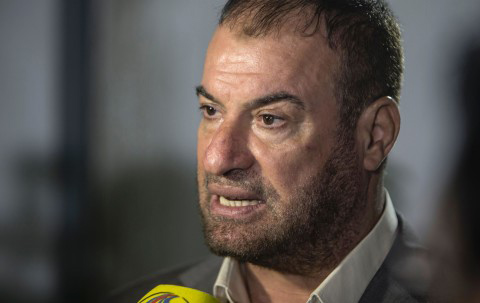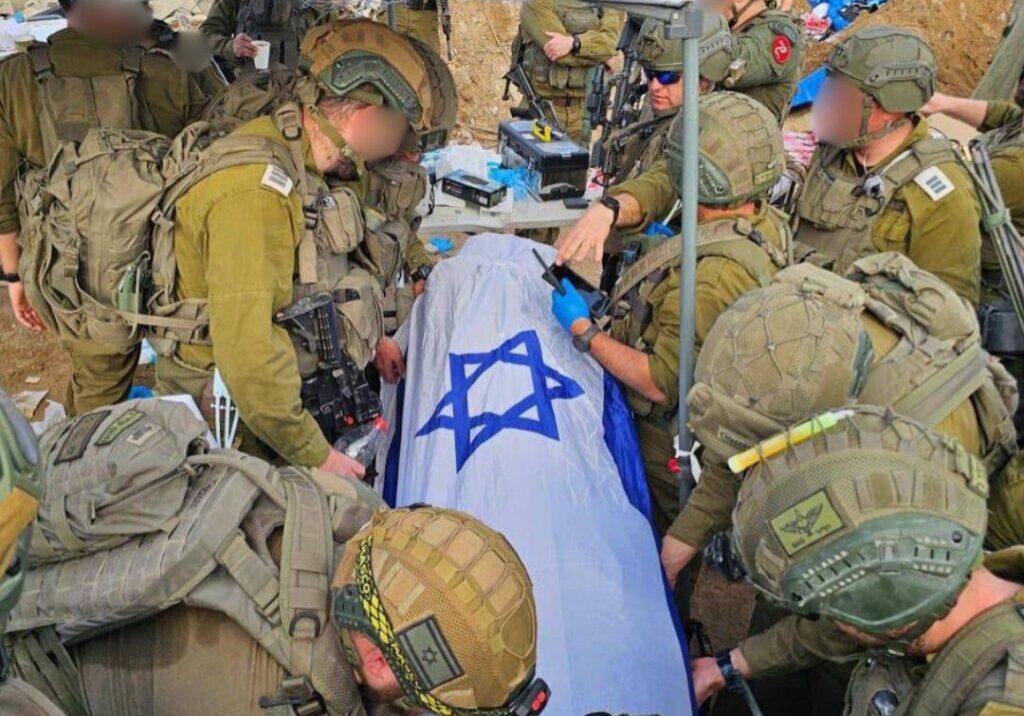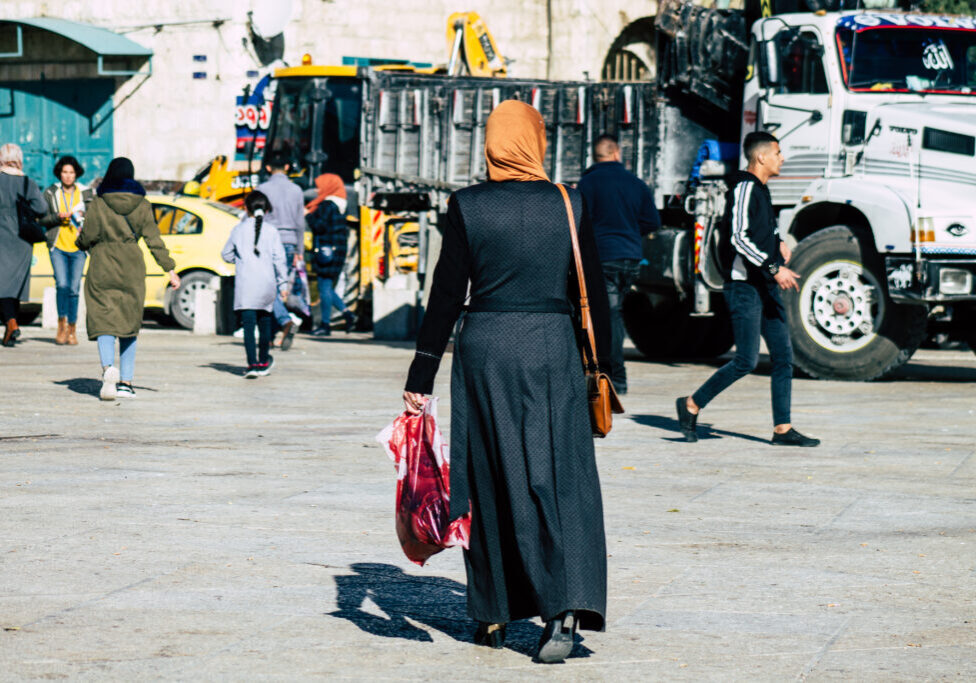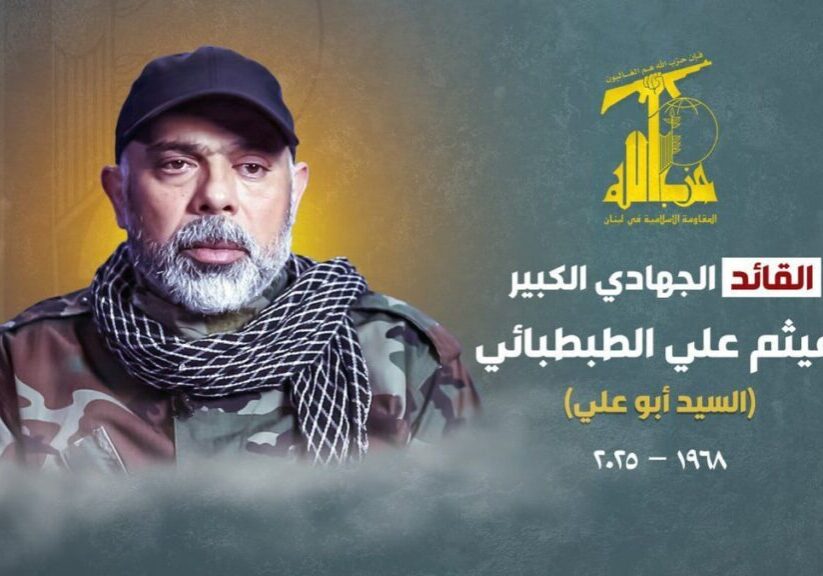Australia/Israel Review
Something is rotten in the Hamas terror kingdom
Apr 3, 2018 | Avi Issacharoff

Avi Issacharoff
Once again, on March 15, an explosive device was detonated in the Gaza Strip. And once again it appears that Hamas was not responsible for the attempted terror attack. However, the spate of recent incidents in Gaza raises suspicions that something is particularly rotten in the “kingdom” of Hamas. At best, there are officials within the terror group who are not following the orders of the leadership; at worst, they may be receiving a quiet nod to work secretly against Israel.
March 15 was not the first time that a roadside bomb within the coastal enclave has targeted Israeli troops or that the IDF has discovered explosives put in place to do just that. This, in areas that are supposed to be under the full control of Hamas forces.
Two days previously, the chaos had escalated in an unusually serious incident, when someone, at present unknown, attempted to murder Palestinian Authority (PA) Prime Minister Rami Hamdallah and PA General Intelligence Chief Majed Faraj as they visited Gaza.
According to Hamas Deputy Interior Minister Tawfik Abu Naim, there were two 15-kilogram (33-pound) bombs placed 37 metres apart from each other. One bomb exploded but the second failed to detonate due to a technical problem. The devices were placed on the main north-south route through the Gaza Strip (Salah a-Din Street) only a few hundred metres away from the Erez border crossing into Israel – and under the nose of Hamas security forces.
“There is no chance that someone in Hamas didn’t know that these bombs were placed there,” a senior Palestinian Authority official told the Times of Israel later. “From a security point of view, someone there closed their eyes or gave it their blessing. It is impossible that everything was done there without anyone in Hamas knowing about it.”
It must be said that this Palestinian official is not known for his love of Hamas, but his suspicions are reasonable. It is equally difficult to imagine that no Hamas officials knew of the March 15 bombs intended to target the IDF close to the border, which Hamas watches carefully.
Fathi Hamad is a senior Hamas official who opposes reconciliation with Fatah, the party that leads the Palestinian Authority, and urges a resumption of war against Israel. His name is being raised as a possible mastermind behind the Hamdallah assassination attempt, or perhaps as a senior figure who gave his blessing to Salafist terrorists from outside Hamas who may not even have known of his involvement.
In the past, Hamas has worked behind the scenes to root out those, including Fatah members, behind attacks – even when Hamad himself, working from within the organisation, had a hand in planning them. Hamad is now a suspect in these latest incidents. But there are more than a handful of other groups or officials who could be responsible for an assassination attempt like this, or for the bomb attacks against the IDF.
Meanwhile, Hamas seems to be working vigorously to catch those responsible for the attempted killing of Hamdallah and Faraj. We may soon see the “guilty parties” publicly confessing their crimes in front of the Palestinian media. They may even say that the Israeli Mossad pushed them to the deed.
Such confessions can rarely be taken at face value.
Though seen by some as signals of a new militancy on Hamas’ part, these attacks are actually a sign of confusion, of an organisation working at cross-purposes. The group’s leadership in Gaza is trying to establish better ties with the Egyptians, while the leadership abroad, led by deputy head Salah al-Arouri, attempts to get closer to Iran.
Hamas wants reconciliation with Fatah and is ready to compromise on the civilian front, but is not prepared to give up its military branches or its weapons. It is trying hard to avoid an escalation with Israel, while someone in Gaza is working hard to bring on a war with Israel, perhaps under the nose of Hamas and maybe even with (part of) the organisation’s blessing.
Inciting the West Bank
If there is one thing that is clear and obvious, it is Hamas’ incessant attempt to inflame the West Bank. The organisation has devoted a tremendous amount of energy towards this goal.
For example, Hamas terrorist Ahmad Nassar Jarrar, who became a hero among Palestinians when he murdered Raziel Shevach on Jan. 9 in a deadly West Bank shooting near the Havat Gilad outpost and escaped Israeli security forces several times before being killed in a shootout in the village of Yamoun, received financial assistance from Hamas in Gaza, from a group known as “The West Bank Headquarters.”
This group is made up of some of the 150 terrorists freed by Israel in the Gilad Shalit prisoner exchange deal who were expelled to Gaza, and work alongside Hamas’ military wing in the Strip trying to orchestrate terror cells in the West Bank. Most of their attempts fail, but sometimes, as in the case of Jarrar, they bear murderous fruit.
In addition to the “West Bank Headquarters,” Hamas also operates the “Office of the West Bank” which is run from abroad, also mainly by those freed in the Shalit deal. One of the group’s bases is in Istanbul. It seems that Turkish President Recep Tayyip Erdogan continues to host Hamas terrorists, including people who visit and operate from there continually: Arouri, Zaher Jabarin, Musa Dodin and others. This group of West Bank Palestinians, now based overseas, is also in contact with Iran and hopes Teheran will foot the bill for their livelihoods and activities. This despite the inevitable cost they may have to pay in loss of support from Sunni states like Egypt or Saudi Arabia if they are perceived as getting too close to Shi’ite Iran.
Here, too, Hamas is seen at cross-purposes. Yet that does not mean there aren’t unifying threads that should worry Israel. One obvious common denominator: both at home and abroad, Hamas’ activities are often driven to a significant extent by terrorists freed in the 2011 Shalit deal.
Avi Isscharoff is Middle East analyst at the Times of Israel, the co-author of two books on the Arab-Israeli conflict and is co-creator of the hit television action-drama series Fauda (“chaos” in Arabic). © Times of Israel (www.timesofisrael.com), reprinted by permission, all rights reserved.
Tags: Hamas






